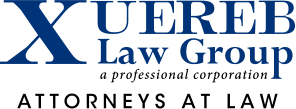Practice Areas ☰
Probate and Trust Administration
MICHIGAN PROBATE ADMINISTRATION
Most individuals own assets and potentially debt at the time of their death. The assets and liabilities of someone who has passed away becomes part of their “Estate.” Probate is the court process by which the property of a person who has died (decedent or deceased person) is distributed, either according to a Will (testate), or without a will (intestate). The goal of probate is to distribute the decedent’s assets according to their wishes.
Non-probate assets are not subject to probate proceedings and pass to the named beneficiary upon operation of law. These assets can include the following:
- Retirement accounts, such as IRA and 401(k) accounts, where there are designated beneficiaries;
- IRAs,
- Life Insurance;
- Annuities;
- Bank Accounts with “pay on death” designations or “in trust for” designations;
- Jointly owned bank accounts with rights of survivorship; and
- Property owned by a living trust. Legal title to trust property passes to the successor trustee without having to go through probate.
A typical probate administration involves the following steps:
- Filing a petition for probate requesting appointment of a personal representative, determination of heirs, and admission of a will (if decedent had a will);
- Receiving letters of authority when appointed personal representative by the court and marshalling all estate assets;
- Notifying creditors of decedent’s passing by publication and/or notice to known creditors;
- Preparing and filing an inventory of all estate assets owned by decedent at the date of death;
- Liquidating assets and selling real property; and
- Meeting with a CPA to complete the decedent’s final income tax return and estate tax return(s);
- Preparing and filing an estate annual account;
- Paying estate debts and taxes; and
- Preparing a petition to close the estate or sworn statement to close the estate and distributing the estate assets to the heirs/devisees.
While this process may seem straight-forward, it can be quite complicated and lengthy to complete. The length of time needed to administer an estate/trust depends on the size and complexity of the estate/trust and the schedule of the probate court.Our attorneys at Xuereb Law Group PC specialize in probate and can assist you every step of the way.
MICHIGAN TRUST ADMINISTRATION
When a loved one passes away with a trust, it is important to make sure that the trustee understands the terms of the trust and accurately administers the trust for the benefit of the beneficiaries.The creation of a trust and putting all assets in the name of a trust avoids the need for probate proceedings and all assets can be distributed according to the terms of the trust by the trustee without probate court involvement.Trust assets are not subject to probate proceedings unless a petition for supervision of a trust is specifically filed with the probate court requesting that the trust be supervised.
A trust is ready to be administered typically upon the death of the person who created the trust, also known as the “Settlor.” A typical trust administration involves the following steps:
- Sending an initial letter to beneficiaries and contingent beneficiaries of the trust providing them with a copy of the trust documents and informing them of the trust assets;
- Publishing for creditors and sending a specific notice to known creditors of the Settlor.In Michigan, a trust must provide a four-month publication period to allow creditors time to file a claim;
- Liquidating, consolidating, and selling trust assets;
- Filing taxes for the trust; and
- Distributing trust assets to beneficiaries.
Every trust is unique and the time it takes to administer a trust varies greatly by the assets involved and the number of beneficiaries. Some trusts require taxes to be filed the following year, so the trustee will do what is called a partial distribution to distribute a majority of the trust assets to the beneficiaries and hold back just enough money to cover taxes and other administrative costs for the following year. The beneficiaries in that situation would then receive the remaining money left over after payment of taxes and administrative costs the following year and the trust would then be closed.
Our attorneys are experienced in trust administration andare here to help navigate you through the process from start to finish.
Working With Xuereb Law Group
Our attorneys have experience with a wide variety of cases within these practice areas. From probate litigation, to divorce and custody, to business litigation, we can help you get the outcome you deserve. Our work in probate, divorce and custody and business litigation law is exemplary. You will work one-on-one with an experienced attorney who you know and trust. Each case receives the personal attention and hands-on approach of a partner. This allows us to maintain the highest standards of client service and work product.
How Can We Help You?
Xuereb Law Group represents clients throughout The Detroit Metropolitan area including Canton, Plymouth, Northville,, Livonia, and Dearborn.
© 2017 by Xuereb Law Group PC. All rights reserved. Disclaimer
Map data © Mapbox © OpenStreetMap.


